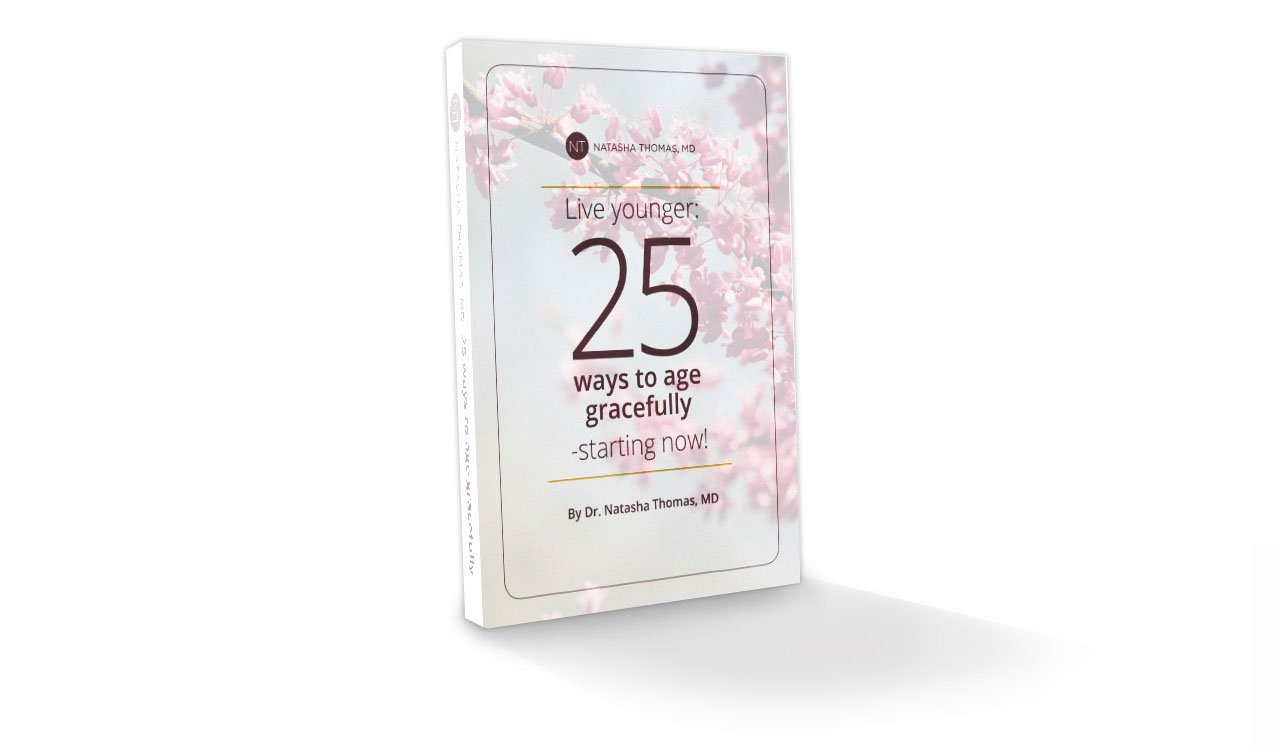Posted on: June 23, 2023
Sleep and aging are deeply intertwined, and to understand their relationship is crucial to our overall health and wellbeing. As we age, it becomes increasingly challenging to get sufficient sleep, which can further exacerbate the effects of aging.
The bidirectional connection between sleep and aging can make sleep issues exponentially more difficult to address, which is why it is so important to prioritize sleep hygiene when we’re young and to take proactive steps to improve sleep hygiene as we age. It truly is worth it.
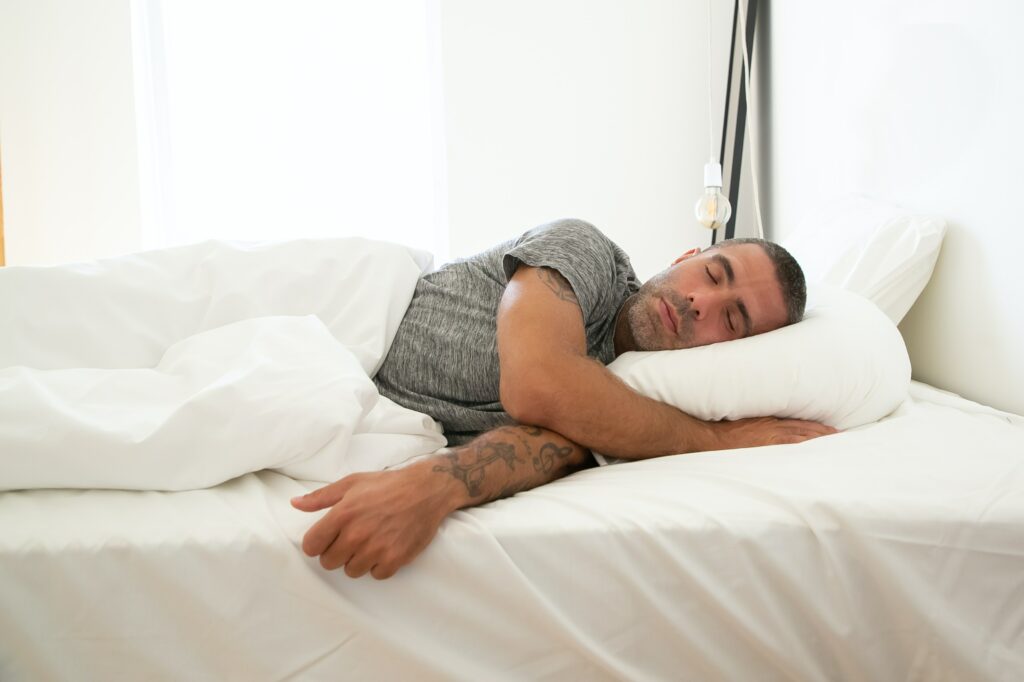
What is the relationship between age and sleep quality?
How does the aging process affect sleep?
Several mechanisms contribute to making it harder to fall asleep and stay asleep as we age. Changes in our circadian rhythm, such as a shift to an earlier sleep schedule, and a decrease in melatonin production can make it harder to fall asleep at night. Aging is also associated with a decline in hormone levels, which can contribute to insomnia and restlessness.
How does sleep affect the aging process?
Sleep plays a crucial role in our health and wellbeing at every age, as it helps our bodies restore and repair themselves. It is during sleep that our bodies produce the hormones that aid in tissue repair and growth. Sleep is also vital to the function of our immune system, which protects us from illness and disease; and it is critical to the maintenance of our cognitive function, memory, and mood.
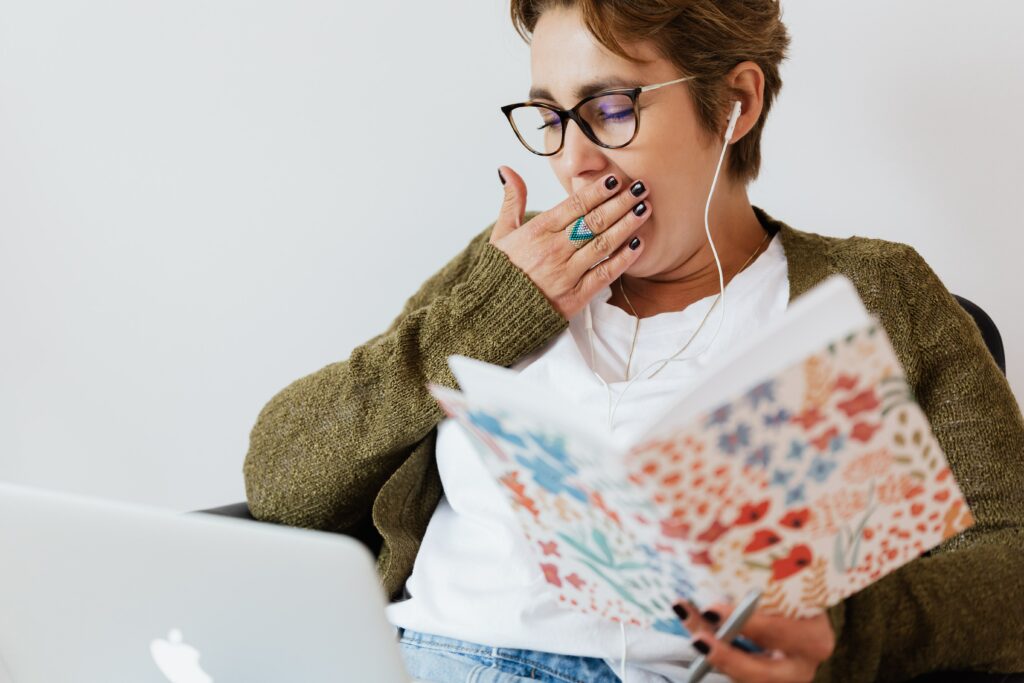
How does lack of sleep affect aging?
Our body’s protective and restorative systems weaken as we age, which means that they rely even more so on the support of sleep. This also means that a lack of sleep will likely result in insufficient immunity, healing, and repair, and result in premature aging.
What is aging and premature aging?
Aging is a natural process of biological change that occurs over time, resulting in a slow decline in physical and cognitive function. Premature aging refers to the acceleration of this process, often as a result of unhealthy lifestyle choices like poor diet, lack of exercise, and of course, insufficient sleep.
The distinction between these terms is important: if you’re experiencing sudden changes in your health, these are not a part of the natural aging process, which is to say, we can do something about it.
Ready to get better sleep? Schedule a consultation with me to get started on a treatment tailored just for you.
Book NowDoes lack of sleep age you?
A lack of sleep can absolutely contribute to premature aging. When we don’t get enough sleep, it can cause an imbalance in our bodies’ hormones, like excess cortisol, which can lead to an increase in inflammation, a decrease in the body’s repair processes, and the premature onset of aging effects, such as dry skin, wrinkles, and hair loss.
Plus, sleep deprivation can affect cognitive function and disrupt our emotional equilibrium, making it harder to stay sharp, focused, and emotionally regulated. These symptoms of sleep deprivation can significantly impact quality of life—which is reason enough to prioritize sleep! But beyond daily life, a lack of sleep can lead to serious, long-term health concerns too.
Can sleep reverse aging?
Getting enough restorative sleep can certainly help slow down the natural effects of aging and reverse the effects of premature aging. In the same way that getting too little sleep can lead to our hormonal dysregulation, getting enough sleep can restore hormonal balance in our bodies and reinstate healthy aging.
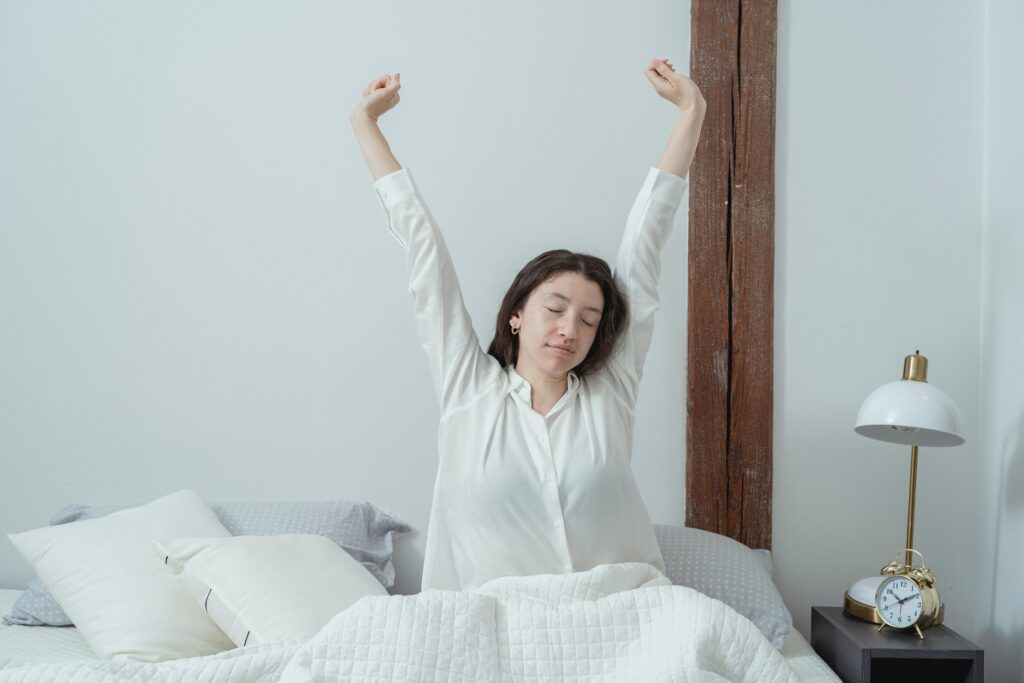
What is the importance of sleep in wellness?
I can’t reiterate this enough: getting enough sleep is a pillar of mental, emotional, and physical wellness. Good sleep is critical to our innate physiological repair processes, while poor sleep can cause a compound of health issues, like insulin resistance, cognitive decline, and mental health issues.
Can lack of sleep make you sick?
Sleep deprivation can compromise our immune system’s function, making us more susceptible to infections like the common cold and flu. For this reason, sleep is especially important as we age and as our body’s immune system requires extra support to keep us safe from dangerous disease.
A lack of sleep has also been associated with increased inflammation in the body—something I focus on a lot with my patients because it is such a significant player in many of the chronic health conditions we face.
Sleep and aging: Long-term health impacts
Lack of sleep and aging with cardiovascular disease
The sympathetic nervous system, responsible for the body’s “fight or flight” response, becomes overactive with lack of sleep, leading to an increase in adrenaline release and a spike in cortisol levels. These factors contribute to the development of atherosclerosis, a condition in which plaque buildup in the arteries reduces blood flow and increases the risk of heart attack and stroke.
This overactive sympathetic nervous system can impair insulin sensitivity, leading to higher blood sugar levels and the development of insulin resistance. Insulin resistance, in turn, is a significant risk factor for cardiovascular disease, as it increases the likelihood of developing metabolic syndrome, type 2 diabetes, and atherosclerosis.
A lack of sleep can further disrupt our bodies’ ability to regulate blood pressure, often leading to hypertension and an increased risk of developing cardiovascular complications.
Lack of sleep and aging with cognitive decline
The relationship between lack of sleep and cognitive decline is complex and multifaceted. Sleep plays a crucial role in our brain’s restorative and repair processes, and chronic sleep deprivation can have numerous negative effects on cognitive function.
One significant consequence of insufficient sleep is increased oxidative stress, which can lead to neuronal death and damage the hippocampus, the region of the brain responsible for memory formation and consolidation. With Alzheimer’s disease, the hippocampus is one of the first brain areas affected, leading to the hallmark symptom of forgetfulness.
Insufficient sleep can also cause an accumulation of metabolic waste in the brain, including β-amyloid, a protein implicated in Alzheimer’s disease. Studies have shown that those who get less than seven hours of sleep per night have a marked difference in the amount of β-amyloid buildup in their brain. What a motivator!
Obstacles to sleep & tips for removing them
Getting good sleep isn’t always as simple as getting good sleep. In a culture of hyperproductivity, we have to be intentional about creating time and space for sleep. Plus, as we age, we face even more obstacles to getting sufficient sleep. Before we discuss these obstacles, let’s get clear on what exactly qualifies as good sleep.
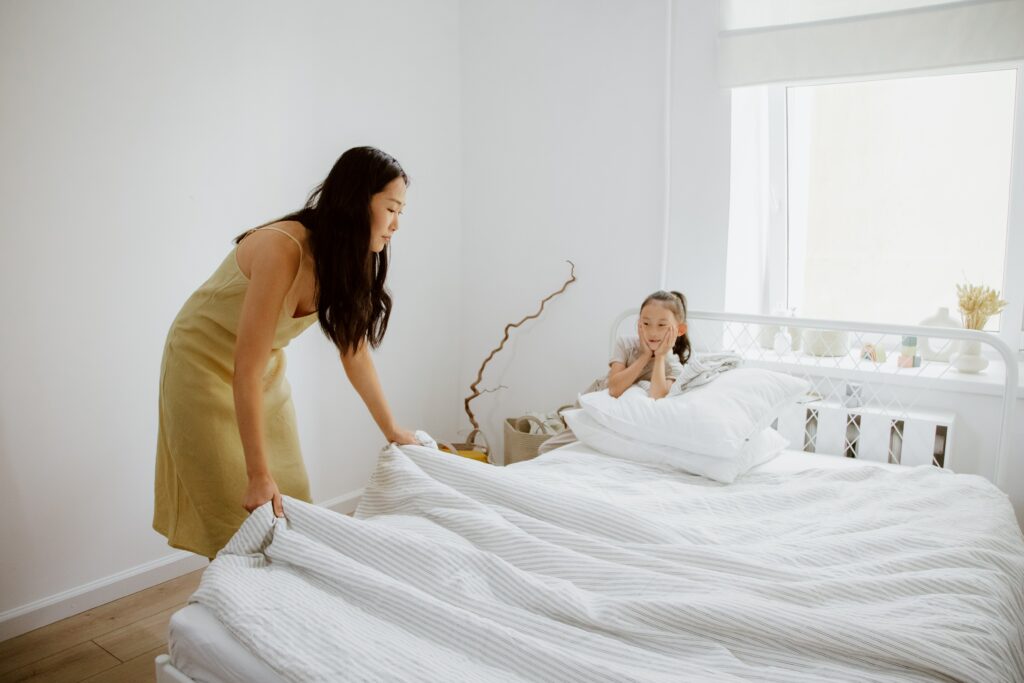
The 4 pillars of good sleep
Regularity: Following a consistent sleep schedule helps to regulate our body’s internal clock, or circadian rhythm. This means going to bed and waking up at the same time every day, even on weekends or days off. This helps our bodies anticipate when it’s time to sleep and when it’s time to wake up, resulting in a better quality of sleep.
Continuity: This refers to uninterrupted sleep, and it’s something that we have to work extra hard for as we age. Waking up many times per night, even for a short duration, can interrupt our sleep cycle and make it difficult to get back to sleep, as well as interfere with the body’s restorative processes.
Quality: The quality of sleep is determined by the “electrical signature” of our brain waves during sleep. Factors that can affect sleep quality include caffeine, alcohol, and medications. Sleep and aging are also closely related in this way, as we are more prone to light sleep as we age.
Quantity: There is no one-size-fits-all approach when it comes to the quantity of sleep. Some people feel best after seven hours; others require nine or ten hours; and some rare individuals need as little as five or six hours of sleep. If you’re wondering, how many hours of restorative sleep do you need, it’s best to listen to your body. Listen to how you feel in the morning. If you wake up feeling refreshed and energized, you’re likely getting enough sleep; but if you wake feeling groggy and fatigued, try adding an hour and noting how you feel.
You don’t have to tackle this on your own. Reach out to me today to discuss a treatment plan that can support your path to better sleep.
Schedule a Consultation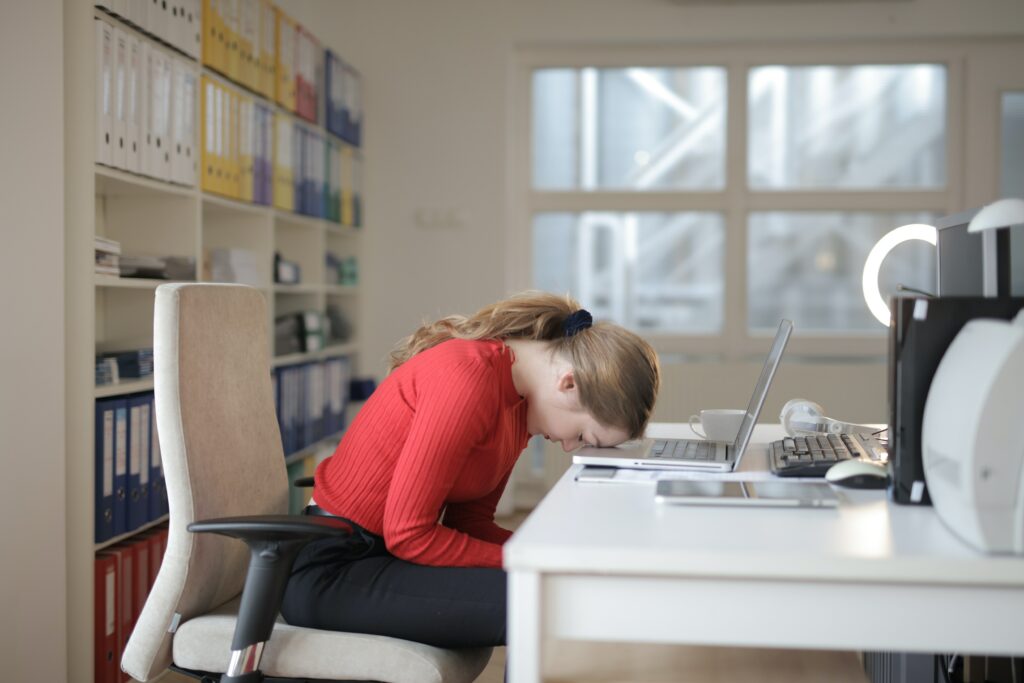
Stress, sleep, and aging
It’s no secret that stress can be a major obstacle to a good night’s sleep. The relationship between stress, sleep and aging is cyclical and intimately linked. When we are under constant stress, it can make it difficult to fall and stay asleep; and when aging brings about changes in sleep patterns, it can exacerbate the negative effects of stress on sleep and aging. Over time, the lack of sleep can contribute to high stress levels, creating a vicious cycle that can be challenging (but not impossible!) to break.
Tips to fall asleep
One effective strategy is to create a nightly relaxation ritual around bedtime, such as taking a warm bath, reading a book, or any activity that helps you unwind and let go of the day’s stressors. Additionally, lowering overall stress levels can help improve sleep quality. Some of the lifestyle habits I recommend for maintaining low stress include:
- Eating a balanced diet
- Getting regular exercise
- Meditating or practicing mindfulness
If you struggle with anxiety, you may need additional coping strategies, in which case working with a mental health professional is important for managing stress levels to improve sleep and aging.
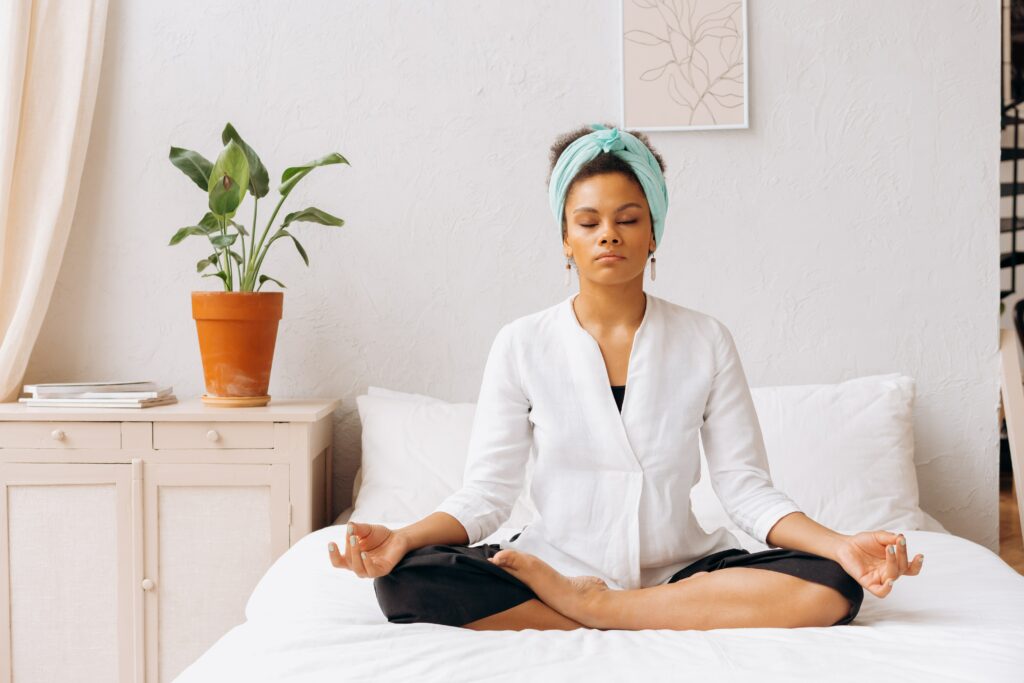
Schedule, sleep, and aging
Especially as we age and undergo lifestyle changes—which often involve unpredictable family obligations, social commitments, and work schedules—maintaining a consistent schedule can be complicated. An irregular schedule can make it difficult for the body to establish a consistent sleep rhythm, which can lead to difficulty falling and staying asleep.
Additionally, your chronotype can have a major impact on your ability to get restful sleep. Some of us are wired to go to bed and wake up early, while some of us do better when we can stay up late and sleep in.
Tips to achieve sleep regularity
Creating a bedtime routine that involves winding down and disconnecting from electronics can help signal to the body that it’s time to sleep. While it may take time to build a sleep schedule that works for you, making mindful choices that honor your chronotype can make a huge impact on restfulness for better sleep and aging.
Making big changes to your schedule like this can feel intimidating, but I assure you: it doesn’t have to limit your life and actually can make it feel much fuller!
Caffeine, sleep, and aging
Caffeine and alcohol can both be obstacles to good sleep. While most of us are aware of this impact, you may be surprised to know that the effects of caffeine can last up to 12 hours! While alcohol may make you feel drowsy and relaxed initially, it can disrupt sleep by interfering with the body’s ability to achieve deep, restful sleep, causing frequent awakenings and even nightmares.
Tips to set sleep-supportive habits
If you’re struggling to get good sleep and are regularly drinking caffeine or alcohol, setting limits, especially in the hours leading up to bedtime, is a great place to start. Herbal tea can provide a healthy alternative to coffee and alcohol that also actively promotes relaxation and restful sleep. You can further mitigate sleep interruptions by avoiding overhydration and a full bladder close to bedtime.
Screen time, sleep, and aging
Spending time on electronic devices before bedtime can be surprisingly impactful on quality sleep. Not only do screens activate brain activity and inhibit sleepiness, but the blue light emitted from screens can disrupt the production of melatonin, a hormone that helps regulate sleep. This can both make it difficult to fall asleep and impact the quality of sleep.
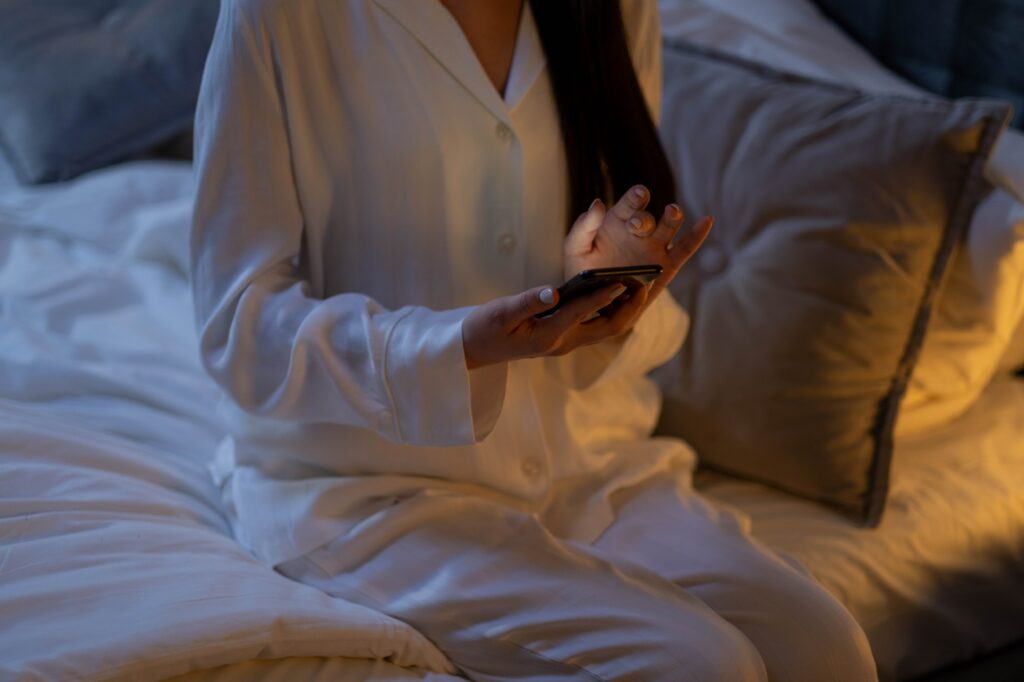
Tips to avoid screens before bed
Spending time on electronic devices before bedtime can be surprisingly impactful on quality sleep. Not only do screens activate brain activity and inhibit sleepiness, but the blue light emitted from screens can disrupt the production of melatonin, a hormone that helps regulate sleep. This can both make it difficult to fall asleep and lower the quality of sleep.
Hormone imbalance, sleep, and aging
Hormones play a crucial role in regulating sleep patterns. In males, low levels of testosterone have been associated with poor sleep, and in females, low levels of progesterone and estrogen have been linked to sleep disturbances, particularly during menopause. As we age, hormonal changes become more common, particularly in people in their 40s and 50s.
Does HRT help sleep problems?
Hormone replacement therapy (HRT) has helped improve sleep for my patients with hormone imbalances that could not be resolved through lifestyle management alone. Testosterone, progesterone, and estrogen all play an important role in regulating sleep-wake cycles, so by restoring normal levels of these hormones through tailored treatment, many patients experience improvements in their sleep and aging.
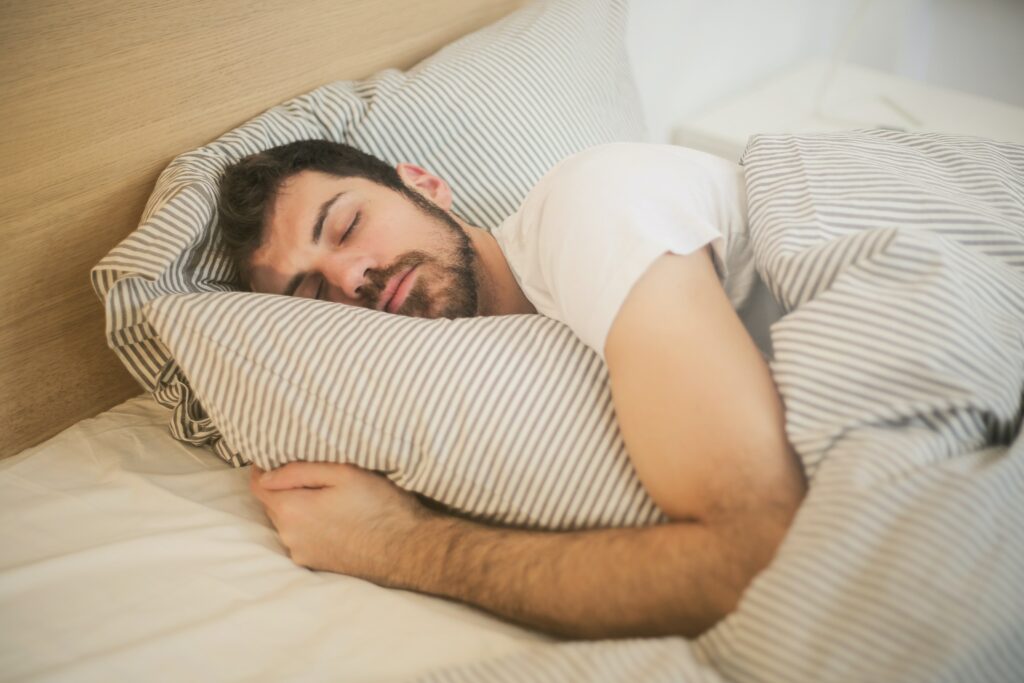
Additional tips for better sleep and aging
Lowering the temperature in your bedroom can help your body regulate its temperature. This environmental factor is an easy one to miss but is often a major contributor.
Nonstrenuous exercise before bed, such as walking and stretching, can help improve sleep in several ways, especially by reducing stress and anxiety.
Practicing gratitude before bed can help shift your focus from negative thoughts and emotions to positive ones for a more restful sleep. Easier said than done, but just initiating the habit of intentionality can make a big difference over time.
Deep breathing exercises can help lower your heart rate to promote relaxation and make it easier to fall asleep. This can also be a helpful way to physicalize your gratitude or mindfulness practice.
Certain supplements like magnesium, glycine, and melatonin can help ensure sufficient, restorative sleep especially for those with hormone imbalances. See my most recommended supplements for sleep here.
If you are struggling to fall asleep, stay asleep, or achieve restful sleep, the impacts could be seriously impacting your health. Conversely, if you’re feeling rapid or excessive effects of aging, improving your sleep could make all the difference in restoring your quality of life.
Fortunately, you don’t have to break the cycle of poor sleep and aging on your own. I can help you modify your sleep routine, adjust other lifestyle factors, and formulate treatment and tailored supplementation to attain the continuously healthy sleep and aging you deserve.
Schedule a consultation to get started right away.
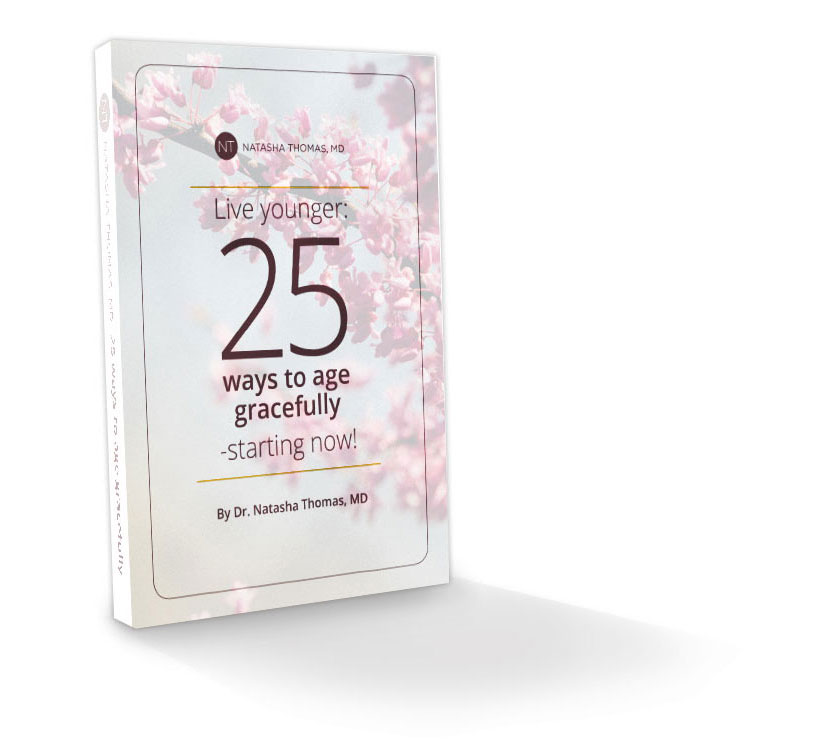
Enjoying this article?
Subscribe + don’t miss the next one!
We’ll also send you our e-book: Live Younger 25 Ways to Age Gracefully—Starting Now.

